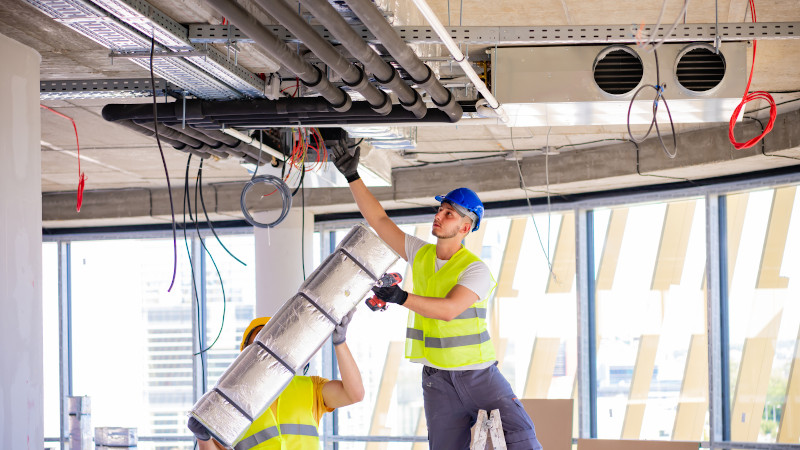
The mechanical systems in your commercial building are what drive its ventilation and determine your building’s health by its air quality. Poor air quality can result from the building design and construction, poor ventilation or filtration, or indoor contaminants among other factors. When indoor air pollution causes up to 50% of respiratory illnesses, having better air quality in your building will naturally make your facilities safer for its occupants. Understanding how your mechanical systems work will help you to improve the air quality in your commercial building.
One of the most important mechanical systems in your building is the heating, ventilation, and air conditioning (HVAC) system. It controls the humidity, temperature, and air quality of the building. Most people only consider the temperature controls since that can most directly impact the comfort levels inside a building, but it is also responsible for bringing in clean air and filtering out contaminants. Ensure that your HVAC system is maintained regularly since changing filters and consistent cleaning will lead to better air quality.
Ventilation rates for commercial buildings are defined by various codes and standards. Building owners can be fined by the State Board of Health if they are not providing proper ventilation, to emphasize the importance of protecting building occupants from CO2 or other pollutants.
Perform an indoor air quality test to determine the source of any pollutants and optimize your HVAC system to improve air quality. Routine testing and preventative maintenance will ensure that your building’s air quality remains high and will improve the safety of your facilities.






